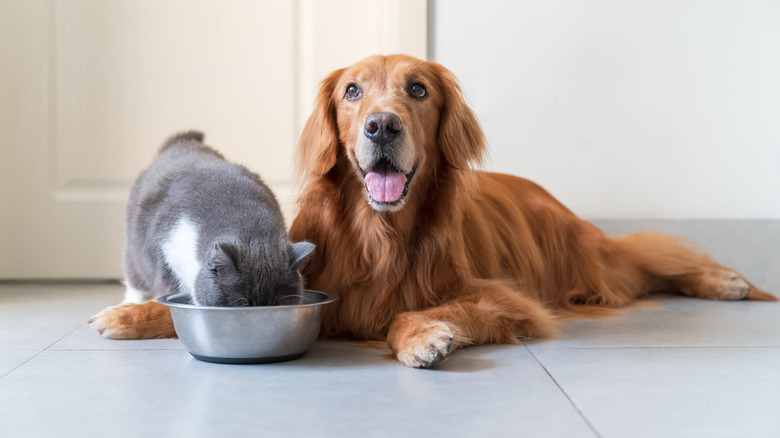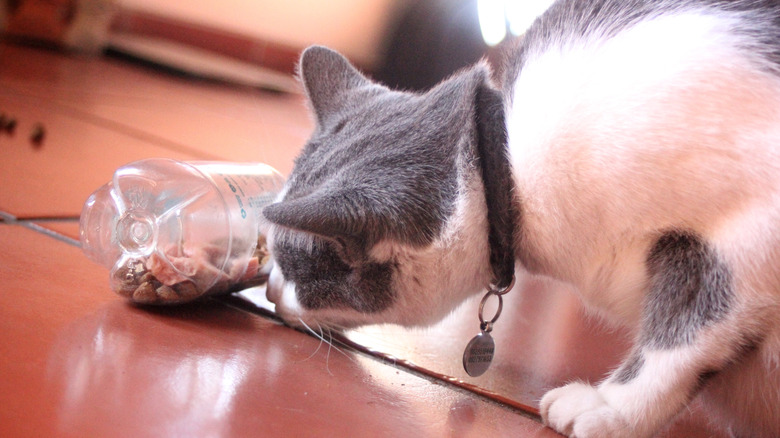Should You Be Concerned If Your Cat Eats Your Dog's Food?
While dog food isn't poisonous to cats, this doesn't mean they should eat it on a regular basis. Cats and dogs have different dietary requirements, and these are often reflected in the nutritional makeup of their food. Felines are obligate carnivores, and therefore need more protein than their canine friends. Although dog food contains some protein, it's not enough to meet a cat's dietary needs.
Cats also require dietary taurine, an essential amino acid that isn't often supplemented in dog foods, as most dog breeds are able to make their own taurine from other essential proteins. A taurine deficiency can lead to many health issues, including feline central retinal degeneration (FCRD) which causes irreversible blindness in cats. A lack of taurine in your cat's diet can also cause heart issues, such as dilated cardiomyopathy (DCM), a heart condition that leads to enlargement of the heart. Further, taurine is essential for the development of kittens during a cat's pregnancy.
Additionally, dog food tends to be higher in carbohydrates than cat food. Even though it's not going to hurt your cat if they sneak a tiny nibble of kibble, if they eat too much of it too frequently, it can eventually lead to obesity. Because of this, you'll want to make sure your cat is not eating your dog's food as a daily habit. If you're worried your cat isn't eating right, a trip to the veterinarian is always best.
Entice your cat to eat a healthy diet
If your cat eyeballs your dog's kibble regularly, you may wonder if there's something wrong with their own food. One reason why your cat may be reaching for dog food is simple curiosity. Cats are drawn to food by smell, so if there are strong odors coming from your pup's meal dish, that could pique their interest. They could also be bored with their current food.
Thankfully, there are steps you can take to help make your cat's mealtime happier. Warming up their wet food or adding a little broth or tuna juice to their food can encourage them to eat. Be sure to use a low-sodium or cat-formulated broth to reduce any strain on their kidneys and skip varieties that contain onions or garlic, both of which are toxic to felines. A spoonful of wet food can also provide your cat with some of their daily water intake needs. Offer your cat a variety of foods to see if they like something else better.
Some of the best automatic cat feeders can help keep your cat on a regular feeding schedule so they aren't tempted to steal your dog's food. An automatic feeder with an RFID tag can also control who has access to what food, making stealing it harder. Additionally, changing how your cat gets their food can make their mealtimes more exciting. Food puzzle toys are one of the many essential enrichment activities great for indoor cats. They can entice your feline to enjoy their own food by mimicking how they might eat in the wild.

